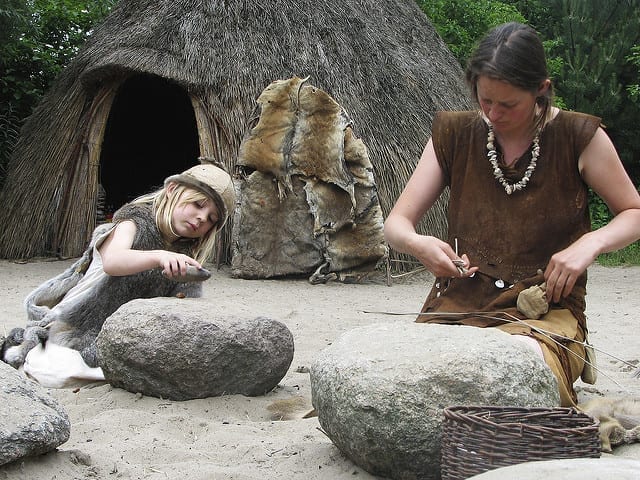Humans haven’t always had such a complex way of living. In simpler times, people interacted more directly with the processes that satisfied their needs and sustained their lives. Over time, however, complexity naturally evolved as a way of solving problems. Intermediaries – middlemen – were added in between people and their goals. Whether or not this is a good thing depends upon who you are, what you need, and how much “help” you can afford.
Humans haven’t always had such a complex way of living. In simpler times, people interacted more directly with the processes that satisfied their needs and sustained their lives. Over time, however, complexity naturally evolved as a way of solving problems. Intermediaries – middlemen – were added in between people and their goals. Whether or not this is a good thing depends upon who you are, what you need, and how much “help” you can afford.
Think of it this way. Everybody needs to eat. People used to take care of their nutritional needs by directly obtaining food from their environment by hunting and gathering. This can take surprisingly little time; several studies indicate that modern hunter gatherers, even in the marginal areas left to them by the dominant culture, only spend an average of around 20 hours per week obtaining food this way, with another 10-20 hours per week performing tasks around the camp, such as cooking or making tools. They do not generally perceive these tasks as drudgery as many modern workers view their jobs. Indeed, many of the rest of us engage in activities like hunting, fishing, gardening, making things, and foraging as hobbies, pleasant tasks to help us relax and enjoy life despite our jobs.
However, something happened several thousand years ago that caused the human population to rise. There are several hypotheses about what it could have been, from rising seas causing crowding to the first odd cities, but these speculations are beyond the scope of this post. Around the same time, though, social complexity increased. Intermediaries came between other people and the sources of the things they needed every day. For example, you no longer necessarily hunted or gathered your own food, but instead obtained it from a farmer who grew it for you. Maybe the farmer was a slave or peasant, and the middlemen at the palace or temple redistributed their products to you. At other times, the food may have been a gift, or a commodity obtained through trade. Or perhaps you specialized at growing food, and traded it for what you needed but couldn’t make yourself. Either way, the human experience became separated from direct interaction with producing all of our own goods.

As time passed, complexity generally increased. The invention of money, arising from bureaucratic record-keeping of agricultural commodities, made adding intermediaries even easier. For example, imagine you wanted to trade your surplus grain for some doctoring. It would, at first glance, be easy to tax the grain half of the transaction by skimming a measure of the wheat or barley right off the top. (In reality, it’s more difficult than it seems.) Harder, though, is confiscating part of the broken bone you had set in exchange. Mandating that such exchanges be transacted in legal tender enables an assortment of intermediaries to take a cut, from the tax man to the priest to the local mafia.
Increasing complexity, when successful and affordable, also creates a complexity-increasing positive feedback loop. Eventually societies reach a size where levels of bureaucracy feed heavily upon the productive capabilities of a society. What happens when the king, for example, has too many subjects to be able to know personally, but still wants to collect taxes? He appoints intermediaries, of course! Once the king relies on barons who rely on lords who rely on knights to skim the production of the peasants, the peasants could be paying a crushing level of taxes in order to feed each level of intermediaries until finally, king receives a few ducats passed into the royal treasury.
So, how does the evolution of intermediaries affect us now, and does it help or hinder us as we go about our lives? That’s what tomorrow’s post will address.


Join the conversation!